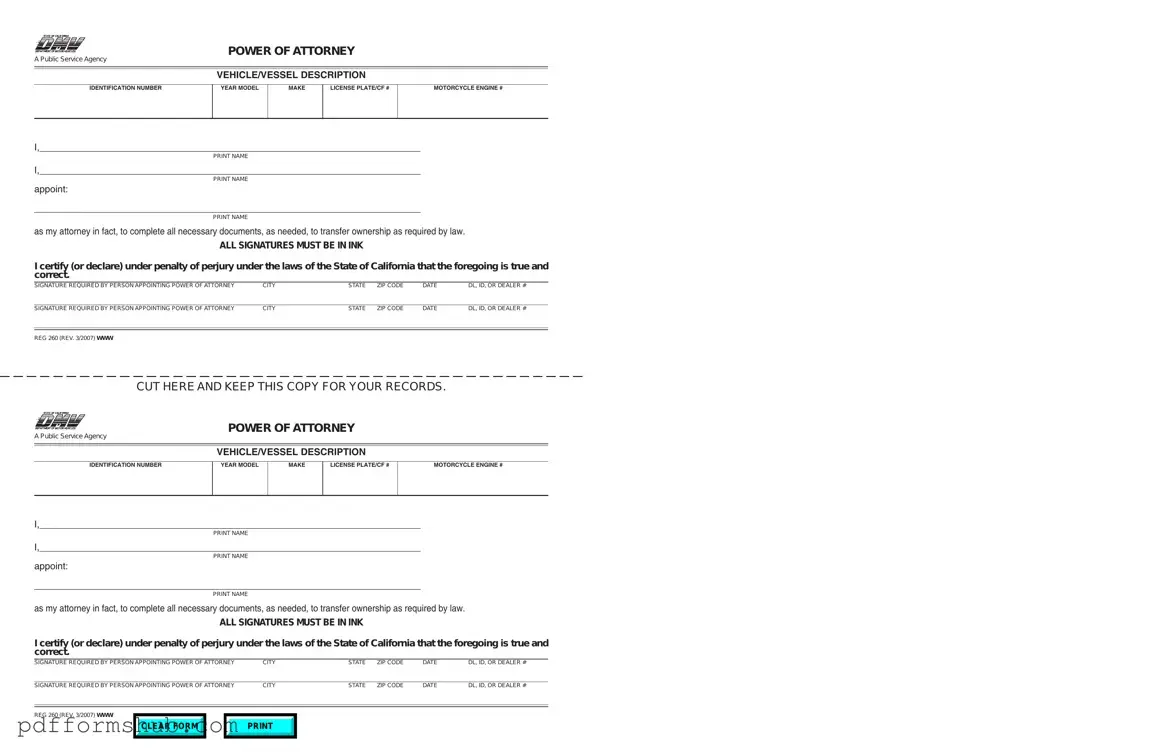Fill in Your Vehicle POA REG 260 Form
The Vehicle POA REG 260 form is a Power of Attorney document that allows an individual to authorize someone else to act on their behalf regarding vehicle-related matters. This form is essential for anyone who needs to delegate authority for tasks such as registration, title transfers, or other vehicle transactions. Ready to simplify your vehicle dealings? Fill out the form by clicking the button below.
Customize Form

Fill in Your Vehicle POA REG 260 Form
Customize Form

Customize Form
or
Free PDF Form
Short deadline? Complete this form now
Complete Vehicle POA REG 260 online without printing hassles.